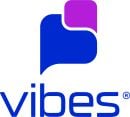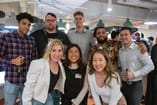The tech industry has gained a reputation for a male-dominated culture, which is often particularly pronounced in technology and engineering departments. For women who are building their careers within the field, that can present challenges their male colleagues aren’t faced with.
For this two-part article series, we asked technologists at eight Chicago companies what advice they would offer other women who are starting their career journeys. Read some of their answers below, and check back tomorrow for part two in the series.

Grubhub lead software engineer Leah Whittaker knows a thing or two about what it takes to build a career at successful tech organizations. To her, the biggest key to growing professionally has been her effort to become a resource for the team through gaining subject matter expertise and using it to help others.
Do you have any advice for other women who want to enter the field, or are just getting started in their careers?
The most important thing you can do is to earn the respect of others, which can be done by constantly learning and being a team player. To learn as much as you can about your area and gain technical skills, it helps to read documentation and blog posts, watch videos and learn from your peers. Absorb as much as possible as quickly as possible about the tech stack at your company — this type of knowledge can quickly make you a go-to person for others.
Being a team player is incredibly important, so deliver quality work on time, pay attention in meetings and ask thoughtful questions, and pitch in when someone else needs a hand. Finally, make an effort to get to know the other women in your workplace. When things get tough, it’s invaluable to have someone to talk with who understands your situation better than anyone else.
What has the experience of working for Grubhub been like for you?
My favorite thing about working at Grubhub is the people. We don’t just hire really smart people, but also people who are easy to work alongside. They have the drive to do things the best way — and to do it as a team. Our leadership also encourages continual learning and improvement by facilitating training and exploration. In addition, I love working at Grubhub because many of my family and friends use our platform regularly, so it’s fun to be able to work on features that they find valuable.
What is your company doing to promote diversity and inclusivity in your organization or the broader tech community?
Grubhub is very involved in events and activities that help get more young women interested and excited in pursuing tech careers. These events vary from recruiting activities, like a recent Women in Technology event at Northwestern where the goal was to encourage female students to apply for career opportunities at Grubhub, to educational events in our office, such as a #BUILTBYGIRLS session where young girls in tech toured the office and heard about what it’s like to work at Grubhub.

For One North Interactive associate creative director Jessica DeJong, realizing that confidence shouldn’t be contingent upon having all the answers was a pivotal career moment. She has also found great benefit from having a more experienced mentor, as well as from mentoring other women as they grow in their careers.
Do you have any advice for other women who want to enter the field, or are just getting started in their careers?
My advice is to have confidence in yourself and trust that you belong at the table. I remember having a bit of imposter syndrome when I was first starting out, and then early in grad school I had a professor who said great developers are just great Googlers. I think that’s a bit of an oversimplification, but hearing that — and then seeing it in practice at work — was a turning point for me. I realized that it’s OK to not know everything; really, no one does. The important part is to stay curious so you’re always learning something new.
I’ve also really benefited from having a mentor within the company; she’s a great sounding board for me and has given me really great career advice. In turn, I’ve tried to support and mentor both other women at One North and women who are interested in entering the field. I would say that mentorship is vitally important to increasing female representation in tech, whether it be official or unofficial, and whether you’re in the mentee or mentor role. We all need to support each other.
What has the experience of working for One North Interactive been like for you?
One North has been incredibly supportive of me, so it’s been an overwhelmingly positive experience. When I joined One North, I was a full-time grad student working toward my master’s degree in human-computer interaction. Last year, I had my first child. In my time here I’ve been an art director and an associate creative director and now I manage the front-end developers on the experience design team. Through all of this, One North has given me the support and flexibility I needed to make both my personal and professional goals a reality.
What is your company doing to promote diversity and inclusivity in your organization or the broader tech community?
One North has been adding more women to our team, as well as promoting women from within to positions of leadership in the company. That representation, at all levels of the company, matters. I feel really lucky to work for a company that has great female role models in leadership and management positions. It’s important for younger women to see them in those positions and know: “I can get there, too, someday.”
One North is also really great about supporting employees who want to evolve their careers. We recently helped pay for a portion of tuition for one of our designers to do a front-end development bootcamp, and now she’s a hybrid designer and developer.

In thinking about your professional journey, do you have a specific destination in mind? For Jellyvision Associate Engineer Emma Jelley, thinking about where you want to go is the most important piece of the career growth puzzle. After all, it’s hard for people to help you along the way if they don’t know where you’re going.
Do you have any advice for other women who want to enter the field, or are just getting started in their careers?
There is a difference between mentorship and sponsorship. Mentorship involves both abstract and practical guidance and advice, where as sponsorship is more concrete — actively recognizing others for their accomplishments and doing so in formal settings. And both are an important part of career development. Whether through your company or on your own, go out and find someone you respect and who has a job that you want, and ask them to be your mentor or sponsor. You should also lead by example and become a mentor or sponsor yourself, calling out others for their accomplishments.
Whether or not your company has established career paths, it’s important to think incrementally and have a destination with predetermined checkpoints along the way. Don’t be afraid to be transparent with your manager about stretch goals early in your career, either. This transparency will help your manager help you. Moreover, find out as much as you can about conferences or other career-building events and whether or not your company has a budget for them. If your company doesn’t have a designated budget for it, it’s still always worth asking — you could be the catalyst to get them thinking about participation.
Finally, regardless of where you’re at in your career, imposter syndrome can crop up. The first and most important thing to remember when you feel this, is that you are not alone. Doing all of the aforementioned things can help to combat these feelings. Imposter syndrome is natural and passes with time and — most importantly — experience.
What has the experience of working for Jellyvision been like for you?
I think all the members of JV Women in Tech would agree that Jellyvision’s commitment to this group and willingness to fund our endeavors has made a hugely positive impact on women operating in technical roles, and the company as a whole. Jellyvision’s readiness to hold space for self-organized groups like our Women in Tech group, and its openness to feedback from said groups, has created a uniquely supportive environment.
What is your company doing to promote diversity and inclusivity in your organization or the broader tech community?
Here at Jellyvision, we strive to promote diversity by supporting current employees and recruiting external talent with diverse backgrounds. We recently kicked off Jellyvision’s Women in Tech group, which supports women navigating or transferring into technical career paths. Through city-wide networking events, company outings and partnership with other diversity and inclusion driven organizations here in Chicago, we hope to increase the number of women in tech, especially in senior and leadership roles — both at Jellyvision and throughout the larger tech community.

Taking on new challenges and the risks that come along with them is crucial for any engineer who wants to grow professionally. But according to Vibes engineer Allison Figus, women engineers also have to make sure they work for companies who strive to be inclusive.
Do you have any advice for other women who want to enter the field, or are just getting started in their careers?
Shilpa Mohanty, product manager: Don't let male-dominated classrooms and job positions discourage you from entering the field. Be aware of your strengths, be curious and keep learning. Also, it's important to be willing to accept change, take risks and be ready to face failures. That's how you sustain yourself in the ever-changing world of technology.
Allison Figus, software engineer: I have friends who worked for companies where the guy programmers get together outside of work and make a point of not inviting the women programmers. These companies exist. Don’t work for them. Work for a company where your peers make you feel equal.
What has the experience of working for Vibes been like for you?
SM: My experience with Vibes so far has been great! There's lots to learn every day as we are innovating and entering new markets. I work with smart, passionate and driven people. Our culture is very open, fun and collaborative, which encourages growth and ownership. We also have regular lunch and learn sessions, volunteering opportunities and social events that help me bond with my colleagues.
AF: I get to learn a lot of really cool tech, tackle challenging projects and work with chill people.
What is your company doing to promote diversity and inclusivity in your organization or the broader tech community?
SM: We were sponsors at the Women Who Hack event and got an opportunity to network with awesome women in tech. We also participated in the Annual Little Black Dress Night organized by ChiTech’s Young Women’s Leadership Society, which was such as inspiring event. Last month we organized a successful Product Meetup at our office space in collaboration with Chicago Product Management Association. We had a great turnout and participation.
AF: Vibes has a strong commitment to hiring tech interns and junior developers. This is a strategy that is not specifically focused on women or diversity, but this paradigm creates an environment that enables more women and other underrepresented groups to break into the tech field. Diversity is more than just a pipeline problem. You need to offer more than just senior level job openings if you want to change the demographic of your workforce.
Images via participating companies. Responses have been edited for length and clarity.
Got news for us? Let us know with a tip or a tweet @BuiltInChicago









